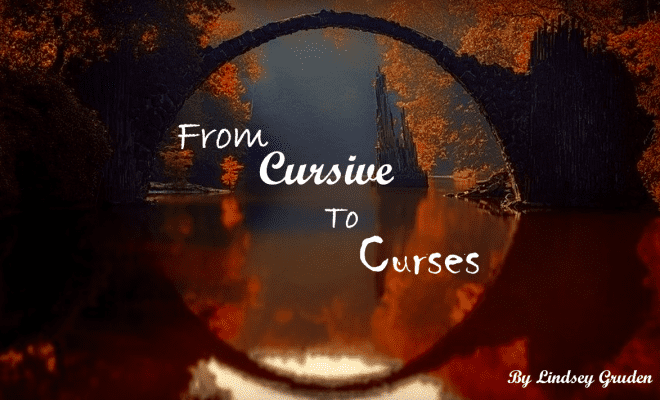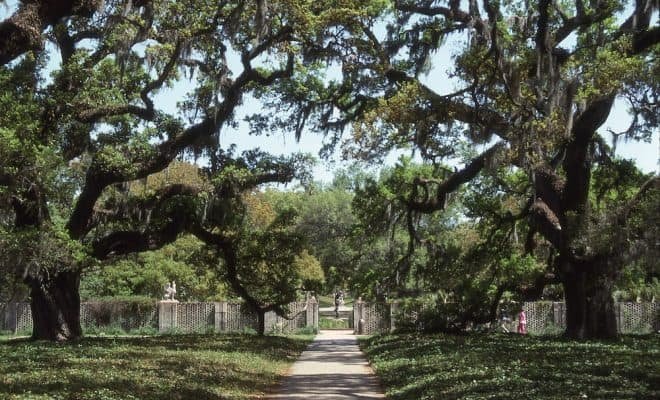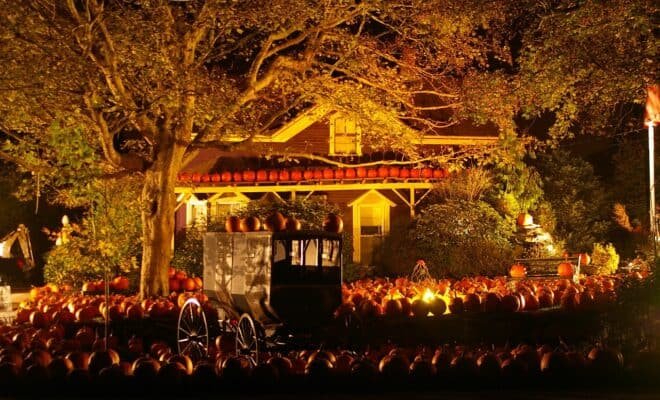Southern Ways – Part 3

- Southern Ways – Part 1
- Southern Ways – Part 2
- Southern Ways – Part 3
- Southern Ways – Part 4
- Southern Ways – Part 5
- Southern Ways – Part 6
- Southern Ways – Part 7
- Southern Ways – Part 8
- Southern Ways – Part 9
- Southern Ways – Part 10 (future)
“Apparitions don’t talk. They only give you hints and expect you to figure it out. My mother was famous for deciphering them, remember?” Ralph stated.
“Do you have Aunt Rosie’s photo albums? I want to make a slideshow for the funeral service.” Maybe I could find her in one of these books?
“She kept all that stuff in the dining room buffet, second and third draw down.” Ralph pointed absently. He didn’t care about all the details. “I’m headed to the back forty; find out how Uncle Jeb’s doing with the new renter.”
With a wave of my hand, I gestured for him to go. I didn’t need him hanging over my shoulder. He reeked of alcohol and a hint of marijuana.
The dining room table, normally set for guests, had place settings strewn about the table. In the middle, Aunt Rosie usually had an enormous bouquet of fresh flowers, but the ones in the vase were all wilted and the water smelled of pond scum.
Upon picking up the vase, pieces of the dead plants scattered on the table and floor as I walked them to the trash bin. Maria, the house cleaner, would have extra work this week.
I opened the drawers. They were laden with photo albums. I pulled a few out. Aunt Rosie had organized them by year, and they dated back to the 1800s. An interesting journey to the past. I grabbed a bottle of water from the kitchen and got comfortable as I opened the first one. The date was 1858.
The cover of the book was a black-and-white picture of the Forsyth Park fountain. A young family stood in front of it. Seeing the oak trees almost bare compared to how they appeared today, lush and green was weird. Beneath it was a handwritten note: “Two greats removed Cousin Mildred, Savannah, Freddie, and Maybelle—1858—Park fountain.”
Various pictures of the family farm, the workers, and more relatives, I imagined. The scenery ones were the most impressive. The city had dirt roads, horses and carriages, and small trees.
Women wore long dresses with petticoats, the men wore a suit with bow ties. The police were on bicycles, no less. Images of black men, women, and children standing in line while scrutinized by white and black men were deeply unsettling.
This one was dated 1859, and Aunt Rosie labeled it “The Weeping Time.” Under it, she wrote:
The Largest Sale in Georgia History. On March 2 & 3, 1859, at the Ten Broeck Race Course, Pierce M. Butler sold 436 men, women, and children from his Butler Island and Hampton plantations near Darien, Georgia, to satisfy his creditors. Many families were separated and lost their dwellings. This became part of the African-American heritage remembered as ‘the weeping time.’ They reported this event in the northern press, and the reaction to the sale deepened the nation’s growing sectional divide in the years immediately preceding the Civil War.
Someone had drawn tears next to the words. Aunt Rosie told about how great-granddaddy’s father purchased as many families as he could afford. The largest buyer was the Wormsloe Plantation. Each owner tried to keep the families together but could not save them all.
There were pictures of crops; corn, cotton, tobacco, and hemp. Hemp was a mandatory growth. Every farmer had to dedicate at least ten acres to the hemp plant. Did Aunt Rosie hate it for that reason?
The horror of that period before or during the war was beyond my imagination. My ancestors may have been wealthy, but I’d never call them lucky. As I flipped further into the book, the last two pages were dated 1882 and titled, ‘The Hurricane of 1881.’
A picture of an estate showed a missing roof, boards scattered over the ground, and debris everywhere while people stared at the photographer. Aunt Rosie’s handwriting was along the side of these pictures:
A Category 2 hurricane hit landfall directly in Savannah. The damage was extensive. Before the naming of storms, a reporter wrote in the evening paper, ‘The damage was worse than when General Sherman marched through Savannah during the war.’
After studying the picture, I realized it was this house. The original one was partially destroyed in a storm, I’d heard. The remodel is what the place looks like today. They had added plantation pillars and a porch for stability. I stared at them, trying to imagine what it was like living in that era.
As I closed the first one, it amazed me how Aunt Rosie had never discussed them. Knowing I was a writer, she would have enjoyed sharing these with me. I glanced at my watch. Cousin Ralph hadn’t returned yet, and I needed to get going to start supper.
I grabbed five more albums and stuck them in a large cloth sack from the pantry. My decision to take them with me would guarantee they’d stay safe from Ralph’s greedy hands. The plan was to remove them in batches of five. I was certain he’d never notice.
Though I hadn’t found the brunette-haired woman who had appeared to me, I felt confident she’d be in a book. Faces were rarely close-up in old photos. I’d have to use a magnifying glass, which I could use as my excuse for taking them with me.
The house appeared ominous when I pulled up the driveway. Ken, my husband, was an accountant for one of the largest organic farms in Georgia and often worked late. If he wasn’t working, he was on the golf course. He enjoyed his cocktails before he ate his evening meal and sometimes stopped at the country club if he knew I was working. I rather enjoyed being alone.
I turned on the porch lights and the foyer chandelier, placing the bag on the settee by the front door. As I walked down the hallway to the kitchen, I continued to flip on light switches. Whenever I’d watch a horror movie, and someone walked into a house, I’d shout, “Turn on the lights, you idiot!” My husband would laugh at me. But everyone knew bad things happened in the dark. I choose to be prepared.
Opening a bottle of Merlot, I set the oven temperature to 350 degrees and took the meatloaf I had prepared that morning out of the refrigerator. Without waiting for it to preheat, I placed it on the middle rack and closed the door. The timer was set for an hour and fifteen minutes.
A decanter was on the bar, and I poured the entire bottle into the fat-bottomed glass and gave it a swirl. My office was to the right of the foyer. I had painted the walls a forest green, a color I got from Aunt Rosie’s decorator. Bookshelves surrounded a carved mahogany monstrosity of a desk. I set the bottle down and walked to the bar to get myself a large red wine-stemmed glass. Something about the presentation made the grape concoction taste better.
On my way into my office, I grabbed the cloth sack. The desk light was already on as it cast shadows along the walls. This apparition had me spooked. I sat down and pulled an album out of the bag.
They dated it 1920-1945. I opened it, and there was Aunt Rosie’s writing again.
Savannah, the oldest city in Georgia, has a colorful history. Cobblestone streets, parks, and historic buildings attract millions of visitors every year. It wasn’t always like this, though. During the Civil War, we suffered severely from the sea blockades, and our economy crumbled. After the war, the Reconstruction period began. At the turn of the 20th century, agriculture and cotton became our primary industries to support ourselves. We became a maritime center, and new industries came to the south; aircraft, shipbuilding, and exporting of resin and lumber. The Boll weevil outbreak of the 1920s destroyed our vast fields, and the Great Depression further slowed down the growth of our city. Many men left to fight in WWII during the 1940s. The economy and growth rebounded. Women filled in at docks and factories while men were gone. Remember Rosie the Riveter? Ha! My great-grandmother advised my mother it was the perfect name to give me.
I picked up the decanter and poured myself a glass of Merlot as I flipped through the pages. Honestly, neither my mother nor Aunt Rosie ever told me that story. To be fair, I suppose I never asked the question. My hometown’s changes and similarities amazed me as I flipped through the book.
Dirt streets, beautiful architecture, even streetcar lines running down the middle of Broughton Street. No artifacts exist today except for some buildings. The Cotton Exchange, the docks, the row houses, and the Railway Bridge still stand in their ancient glory.
The ding on the clock brought me back to the present. I downed the last sip of wine and poured myself another one. I grabbed my drink and the decanter, and went into the kitchen to check my meatloaf. Ken still wasn’t home yet, and he hadn’t called. I couldn’t decide if I should worry or not.
The brunette-haired woman remained mysterious to me. I fixed a plate of food for Ken and placed it in the warm oven . Not feeling hungry, I placed the leftovers in a container and cleaned up the kitchen. I headed to the living room. Watching a little mind-numbing TV might help me fall asleep faster. I settled on an HGTV re-run of My Lottery Dream Home. Boy, if I could be that lucky.
My eyes grew heavy, and I dozed off only to wake to a loud alarm and flashing lights in the house. The fire alarm! I jumped out of my armchair, dropping my glass. It shattered, and the red liquid splattered everywhere. Smoke billowed out of the oven. What the hell? I know I turned it off when I put Ken’s plate there to keep warm. Or had I forgotten? I couldn’t remember. I ran over and pulled the mitts out of the draw.
As I opened the door, smoke poured into the kitchen. My eyes were burning, and I reached in to pull out the rack. “Damn it,” I yelled. The plate was hot, and the meatloaf was flaming. I threw the dish into the sink. It broke as it hit the hard porcelain, and the food sizzled when I turned on the faucet to douse the fire.
When I ran over to open the windows, a reflection stopped me dead in my tracks. The same woman who had appeared at my aunt’s house stared back at me. The reflection in the window showed her standing next to the sink in the kitchen behind me. Her head shook in disapproval.
“What do you want?” I shouted.
I didn’t hear Ken walk through the front door in the chaos. “Dinner would be nice,” he answered. I collapsed on the couch.
“What happened in here?” he asked as he looked around, seeing the broken plate and what looked like blood splatter on the carpet. “Ever since your aunt died, you’ve been acting weird. Wanna talk about it?” Ken sat down and put his arms around me.
“You’ll have me committed if I tell you.”
“Try me.” He said.
“I’m being followed by a ghost.” He raised his eyebrows, patted me on the knee, and said, “Maybe you should make an appointment with Dr. Edwards tomorrow?”
“Just what I thought. I told you. Now you want me to go to a shrink? Thanks for the support.” I pushed myself off the couch. “I’m going to bed. Your food is in the refrigerator.”









